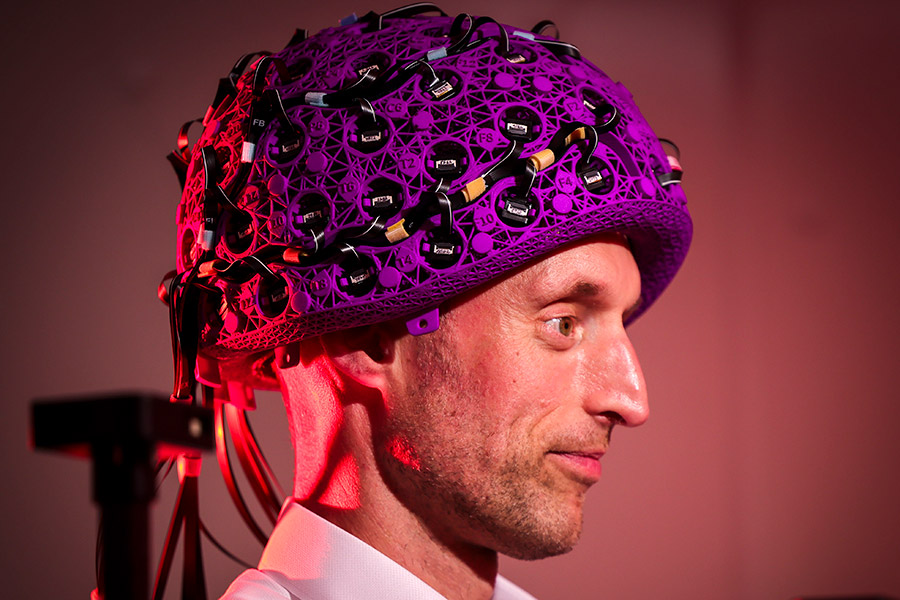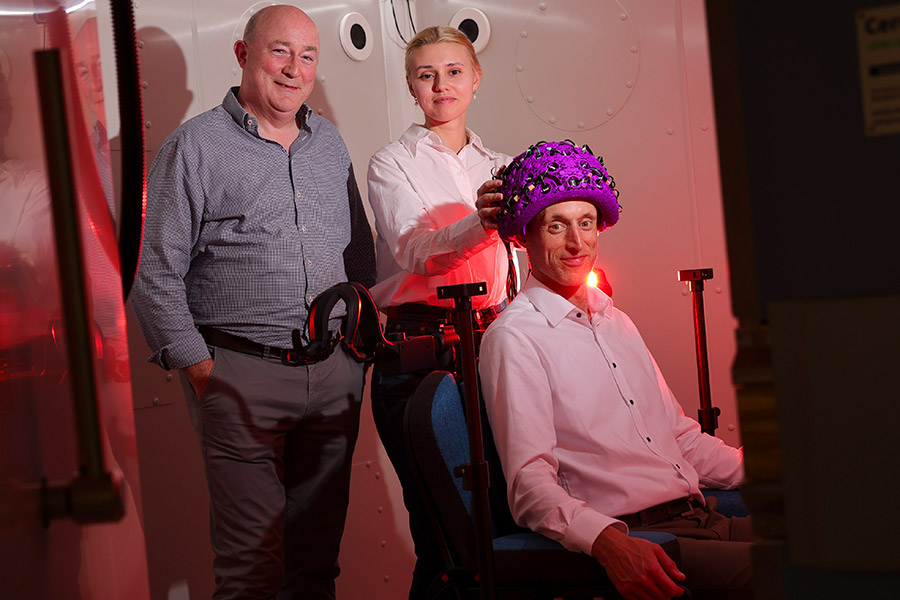A €2m brain scanning system hosted at the Trinity College Institute of Neuroscience will help researchers better understand the brain and identify earliest signs of brain disorders.
The wearable brain scanner, known as an OPM-MEG system, is expected to help researchers catch epilepsy, dementia and attention-deficit hyperactivity disorder (ADHD).
The system uses quantum technology to track brain networks in real time, as they respond to different cognitive demands.
Unlike other brain scanning techniques like MRI where participants must lie motionless while the machine is operating, the OPM-MEG uses a lightweight, adaptable helmet which allows participants to be seated comfortably in a chair or even move freely around a room.
This makes it possible to study brain activity during tasks more typical of everyday life and also to scan children and people with brain disorders.
The new scanner has been hailed as “the most important breakthrough in human brain imaging in the last two decades” by Professor Redmond O'Connell, director of the new MEG facility.
“The new OPM-MEG system here in Trinity will provide scientists with unique information about the timing and location of brain activity, which will deepen our understanding of how the brain works and advance our understanding of the origins of brain disorders.
"It’s a game-changer for researchers working on brain disorders and wider research on the human brain.
“OPM-MEG systems also offer much higher sensitivity and better spatial precision at a lower cost than traditional MEG scanners and have unique potential to change the way that we diagnose and treat conditions like epilepsy.”
For now, the scanner is only available for research use, but it is hoped that it will become available as a clinical diagnostic tool to improve treatment outcomes for patients.
A team of scientists from Trinity, Beaumont Hospital and the National Children's Hospital is working to have the OPM MEG system recognised as a diagnostic and pre-surgical mapping tool by the Health Service Executive.
Professor Sinéad Ryan, Trinity Dean of Research, said: “The launch of the new MEG Facility is a major milestone for Trinity College Institute of Neuroscience which is this year celebrating its 25th birthday.
"TCIN has long been at the forefront of brain imaging research internationally and its role in pioneering new techniques and technologies continues with its early adoption of OPM-MEG.
“This exciting new tool will further enhance TCIN’s mission to advance our knowledge of the human brain and mind, contributing to our university’s strategic commitment to intensify our research.
"The MEG scanning system will allow brain researchers in Trinity and Ireland to continue to push the frontiers of cognitive neuroscience and apply this knowledge to improve the quality of human health and welfare.”
One of only 14 such machines in the world, the OPM-MEG system is housed in a specially shielded room in Trinity College Institute of Neuroscience room which
eliminates external magnetic fields.
Funded by Research Ireland, the new facility is now open to researchers across Ireland working in areas such as psychology, neuroscience, artificial intelligence, ageing research and neurology.
Professor Colin Doherty, head of the School of Medicine, Trinity, added: “MEG imaging has been growing in influence as a method to aid surgical planning for those with severe epilepsy.

"The potential for OPM-MEG to contribute to this work is a fascinating research question that our neurophysiology research team here and in Beaumont Hospital the National Epilepsy Surgery Centre are looking forward to addressing.”
Photo: Ciaran Conneely, Operations Manager of Trinity College Institute of Neuroscience, Professor Redmond O’Connell, School of Psychology and Trinity College Institute of Neuroscience and PhD candidate Daria Monakhovych, School of Psychology and Trinity College Institute of Neuroscience. (Pic: Chris Bellew/Fennell Photography)










